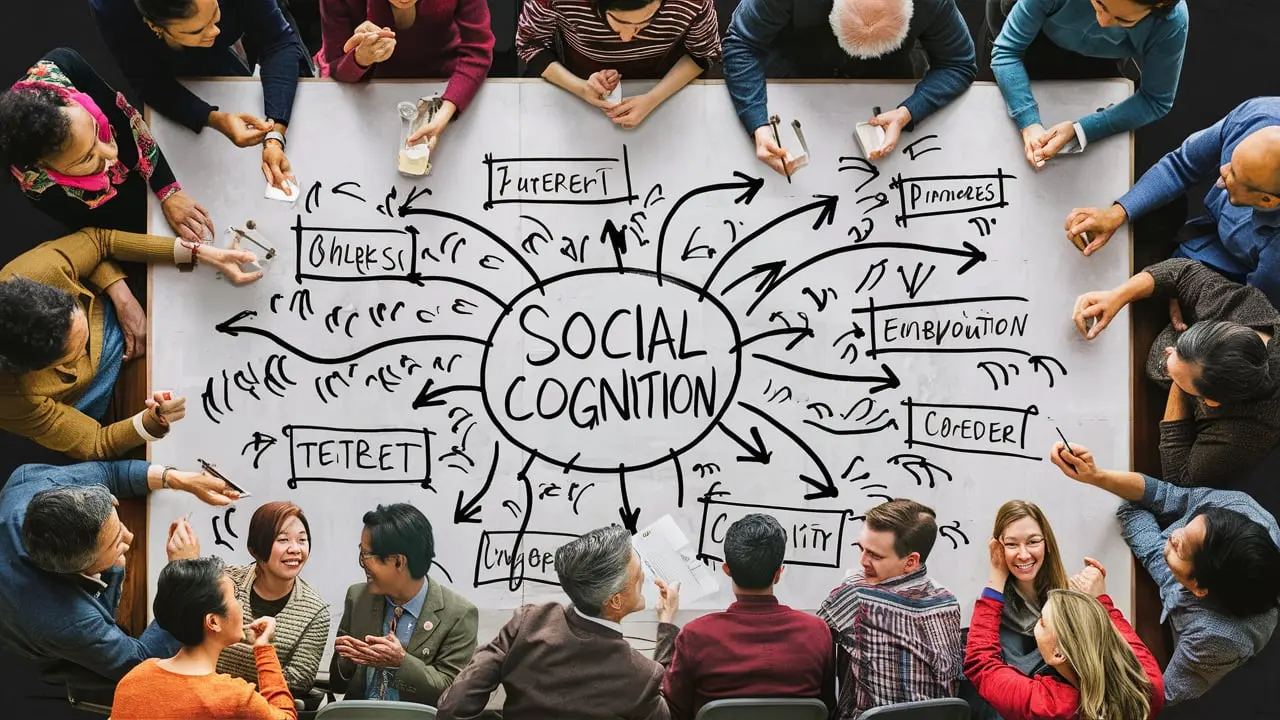Social Cognition: Understanding People and Events

Social cognition is a crucial aspect of human interaction. It refers to the ability to process, interpret, and respond to the social world around us. By understanding how we think about people and events, we can improve communication, strengthen relationships, and make better decisions. This article explores the key concepts of social cognition, its importance, and ways to enhance it in everyday life.
What is Social Cognition?
Social cognition is the mental process that helps us understand and navigate social situations. It involves recognizing emotions, interpreting actions, and predicting behaviors. For example, when someone smiles at us, we understand it as a friendly gesture and may respond with a smile in return. This seamless exchange is a result of social cognition.
The brain plays a central role in social cognition, processing information from facial expressions, tone of voice, and body language. It also draws on past experiences to help us understand new situations.
Why is Social Cognition Important?
Social cognition is essential for building connections with others. It helps us:
- Understand Emotions: Recognizing how others feel allows us to respond with empathy and kindness.
- Navigate Relationships: By interpreting social cues, we can maintain healthy relationships and avoid conflicts.
- Predict Behaviors: Understanding someone’s intentions helps us anticipate their actions and respond effectively.
- Solve Problems: Social cognition aids in resolving disagreements and finding common ground.
In essence, it’s the foundation of effective communication and social harmony.
Components of Social Cognition
Social cognition is a complex process that includes several components:
1. Perception
This involves recognizing social cues like facial expressions, gestures, and tone of voice. Accurate perception is vital for interpreting emotions and intentions.
2. Attribution
Attribution refers to how we explain the causes of others’ behavior. For instance, if a friend cancels plans, we might attribute it to their busy schedule rather than assume they’re avoiding us.
3. Theory of Mind
This is the ability to understand that others have thoughts, feelings, and perspectives different from our own. It’s crucial for empathy and effective communication.
4. Social Memory
Social memory helps us recall past interactions and use that information in current situations. Remembering how someone reacted previously can guide how we approach them in the future.
Challenges in Social Cognition
Not everyone processes social information effectively. Challenges can arise due to:
- Cognitive Biases: These are mental shortcuts that can lead to inaccurate judgments. For example, assuming someone is angry based on their tone, even if they’re not.
- Stress: High stress levels can impair our ability to interpret social cues accurately.
- Neurodevelopmental Conditions: Conditions like autism spectrum disorder (ASD) can affect social cognition, making it harder to understand social cues.
Recognizing these challenges is the first step toward overcoming them.
How Social Cognition Develops
Social cognition begins in early childhood and continues to evolve throughout life. Babies start by recognizing faces and responding to voices. As they grow, they learn to interpret emotions, understand others’ perspectives, and navigate social norms.
Parents, caregivers, and teachers play a significant role in this development. They model social behaviors, teach emotional understanding, and provide opportunities for social interaction.
Enhancing Social Cognition
Improving social cognition can lead to better relationships and a deeper understanding of the world. Here are some strategies:
1. Practice Active Listening
Focus on what others are saying without interrupting. Pay attention to their words, tone, and body language.
2. Develop Empathy
Put yourself in others’ shoes to understand their feelings and perspectives. This builds stronger connections.
3. Observe Social Interactions
Watch how people interact in different settings. Note their body language and responses to various situations.
4. Seek Feedback
Ask trusted friends or colleagues for feedback on your social interactions. Use their insights to improve.
5. Learn About Emotions
Read about emotional intelligence and practice recognizing emotions in yourself and others.
6. Engage in Mindfulness
Mindfulness helps you stay present, making it easier to pick up on social cues and respond thoughtfully.
Real-Life Applications of Social Cognition
Social cognition impacts various aspects of life, including:
Workplace
Understanding colleagues’ emotions and motivations fosters teamwork and reduces conflicts. Leaders with strong social cognition can inspire and guide their teams effectively.
Relationships
Interpreting a partner’s feelings and intentions strengthens trust and communication. It also helps resolve misunderstandings.
Parenting
Parents use social cognition to understand their children’s needs and emotions. This helps in providing appropriate support and guidance.
Education
Teachers with strong social cognition can create inclusive classrooms where students feel understood and valued.
The Role of Technology
Technology has both enhanced and challenged social cognition. Social media and virtual communication tools allow us to connect globally. However, they can also reduce face-to-face interactions, making it harder to pick up on nonverbal cues.
To balance this, focus on maintaining in-person interactions and using technology mindfully.
Conclusion
Social cognition is the key to understanding people and events in our daily lives. By honing this skill, we can improve relationships, enhance communication, and adapt to diverse situations. Whether through active listening, empathy, or mindfulness, small efforts can lead to significant improvements in how we connect with others. Investing in social cognition enriches not only our personal lives but also our contributions to society.
